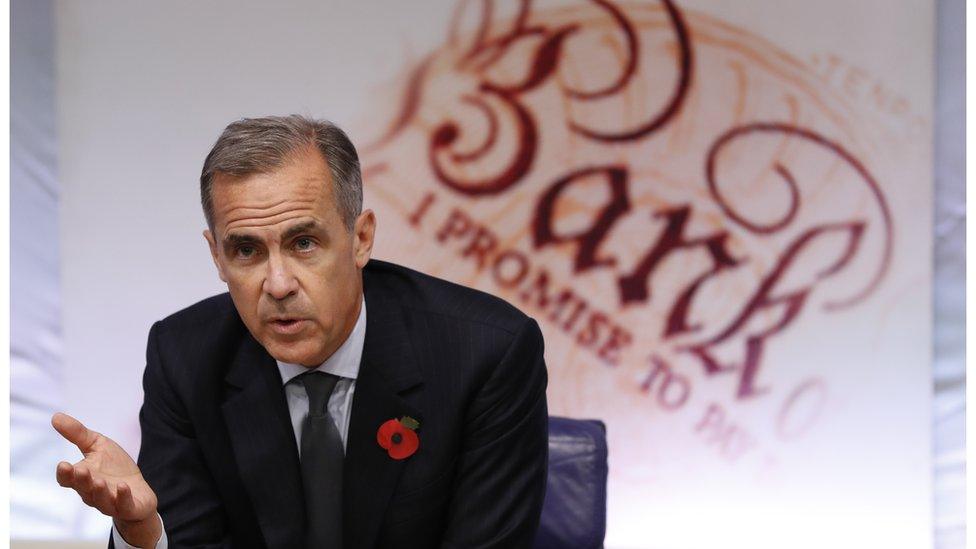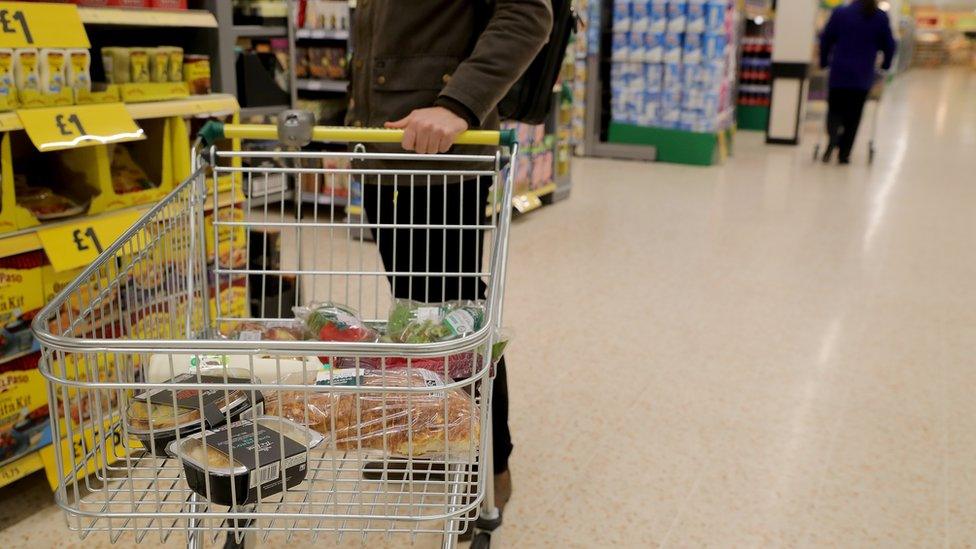The economy - pain cancelled or delayed?
- Published
- comments
EU no longer wants to "chastise" the UK, says Philip Hammond
It is the big question swirling around government.
After another set of economic figures stronger than expected, is this economic pain cancelled, or simply postponed?
On that central issue rests the fate of the government's economic policy.
If it is pain cancelled that means better real incomes for voters.
It means higher tax receipts for the government, lower levels of borrowing and more leeway to spend money on public services.
And, of course, confidence tends to beget confidence.
If consumers - the most important drivers of the UK economy - feel the world around them is feeling positive, they tend to spend.
For businesses, it is not a lot different.
Brexit boost
Larry Fink, the head of the world's largest asset managers, BlackRock, made an interesting point at the World Economic Forum at Davos last week.
Asked why consumer confidence hadn't collapsed following the referendum - or at least had recovered strongly after some initial uncertainty - Mr Fink answered that for lots of people who voted for Brexit or who voted for Donald Trump, the victories were not a negative event.
"They won," he said, simply felt good and kept spending. "Car sales went up."
For the UK economy, it is worth considering two points.

The Bank of England increased financial support for businesses after the Brexit vote
First, the gloomy forecasts before the referendum about the possible effects of a vote to leave the European Union were based on Article 50, the mechanism for leaving the EU, being triggered immediately after the vote as David Cameron promised.
That could have led to a chaotic departure from the EU and certainly would have created greater economic dislocation.
Second, the Bank of England cut interest rates and increased financial support for businesses and banks, soothing market fears.
These two points are not enough to explain all of the resilience in the economy, but they go some of the way.
In my interview with the chancellor, he admitted that he was now "more optimistic" about the process of leaving the EU and the single market.
He said that European leaders were no longer in chastising mood over Brexit, that had now past.
A good deal is on, he said.

A weaker pound is set to push up the price of everyday goods
But, and of course there has to be a but when considering how an economy will perform - a judgement at its most basic on how a million different decisions by human beings will play out.
And the buts are these.
The rate of inflation is increasing as the value of sterling declines.
That will affect people's real incomes.
Jobs are being moved out of the UK and on to the continent in sectors such as banking and finance as businesses prepare for Brexit.
Investments have been delayed.
The UK has, of course, not actually left the EU yet and at the moment is enjoying the stimulus of being in the EU's huge single market with a considerably weaker currency.
That goldilocks situation will not last and the chancellor told me of his concerns about business investment.
Demands of uncertainty
It was the Austrian economist, Joseph Schumpeter, who argued that shocks to an economy can boost growth.
"Creative destruction" may be a little strong to describe the Brexit vote, but innovation can flow when the demands of uncertainty rise.
After Britain fell out of the Exchange Rate Mechanism, the precursor of the single currency, many predicted that inflation would rise and economic growth would stutter.
In fact, the UK economy bounced back, inflation remained in check and the pound rose - after an initial fall.
That is not to say that all "dynamic" shocks have such an effect.
The financial crisis of 2008-09 has negatively affected economic growth for far longer than most expected as the financial services sector contracted rapidly, liquidity disappeared and businesses and consumers paid down debt.
That is why it is still too early to say definitively whether the robust state of the UK economy today means the forecasts for economic pain made before the Brexit vote can now be safely ignored.